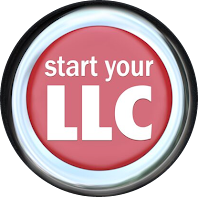Have you ever heard the question from a frustrated and disenfranchised
student, "When are we ever going to use this subject in the real world"?
I'm sure you have. I'm also willing to wager that there was never an
adequate enough answer offered to them about it.
Since 2010 I've been researching as to why we get offered virtually everything EXCEPT the one course we need most as adults: FINANCIAL LITERACY-
Since 2010 I've been researching as to why we get offered virtually everything EXCEPT the one course we need most as adults: FINANCIAL LITERACY-
..and I rather think that's a little messed up.
 |
| Big Business isn't wired for laborers. |
Did you know that its actually illegal to teach finance in grade schools?
..not consumer-centric "Economics" or "Accounting" but entrepreneurial "FINANCE" which are not the same things.
Its even been said that the standardized educational system on a foundational level (although unwittily on an individual level) has built within itself a deeper ulterior motive which is to train the general public to exist either as a compliant employee/worker by default or at best, a Specialist who "owns their own job" (e.g., doctors, lawyers, dentists, teachers, small business owners, etc.) solely by way of college, our very first big bank deal.
Afterward only being offered high-risk liabilities (e.g., student loans,
mortgages, car financing, etc.) sold as assets and benefits that plateau with subpar performance and ever-diminishing returns (e.g., retirement pensions, 401Ks, Roth IRAs, mutual funds,
etc.) which may be your basis but it also has a recognizably low ceiling. And without further knowledge of your terrain ahead, it just makes it all so much more difficult to
rise above your own expenses by much if any especially if you want to "retire" someday.
 |
| In "Metropolis" a prince replaced a worker and is worn out. |
In essence, the objective is reported to be rather sinister: to mass-produce a class of ever-hopeful
Industrial Age-minded subordinates who both believe in and count on a
"secure job with benefits" in the Information Age of the 21st Century
of pump-and-dump companies and quick turnover employment rates where
the "rich get richer" and if no one ever helps the little guy for real, then the value of the worker plummets resulting in "the poor just getting poorer" with no hope of substantial retirement and having to stay employed even in their old age.
"The money is in the treatment, not in the cure."
-Anonymous
To ease the pain, we're offered distractions like pop culture media streaming sites, social media fads, celebrity sports, award and reality shows, mindless television and radio feeds and programming with an endless array of "stuff" to buy that only 'treats' the condition by giving you that delicious dopamine hit that lasts just for a little while but doesn't actually solve or "cure" the quiet nagging of the first problem at hand which is how can the common person start to break out of their current dissatisfactory cycle, both making more money and being able to keep more of what they do make for themselves and their families.
Sounds wilder than your most insurmountable dystopian fantasy plot, doesn't it?
As much as I hate to admit it, I personally can see how this now-blatant lack of information may indeed play a enormous part in how the "Class" system is both built and preserved in levels that the rich benefit from based on what the general public isn't even aware of.
Think about it; a maximum of 20 years of "proper schooling" and an available course in entrepreneurial Financial Literacy for the commonwealth you will hardly ever find!
 |
| Justin is disappointed and frankly so am I. |
Okay, so let's get it!
YOUR FINANCIALS
Are you aware of what position you exist in within the socio-economic
pecking order? There is one and its not "upper, middle nor lower" class.
According to investment guru, Robert Kiyosaki of "Rich Dad, Poor Dad" there are but four ways we make money which is by being either one of the following:
- An Employee
- A Specialist/Self-Employed
- A Business owner
- An Investor
Most people exist either in sector 'E' or in 'S' and if you either have
a job and receive paychecks or own a small business where you are the chief
laborer, then that's you too.

In the 'E/S' sector, a person's time is traded for money in the form of hourly wages while those in the S sector get paid for their specialized skillset. However this itself is a consumer-centric zone, meaning that when a person makes income, they rarely get to keep much of it because they tend to spend more than they make on purchases that do not themselves produce income for them.
The idea is to leave the left side completely and take up residence on
the “B/I” (producer-centric) side of the quadrant where there are either other employees
and partners to help quantify results of your labor and/or where your
existing money, credit and resources can be used to create wealth by
generating CASH FLOW leaving the investor with the freedom they need to
live life without fear of bankruptcy.
Simple enough, huh? So why isn't everyone ALREADY doing this?
 |
| IYKYK - Only a few will get this reference. ^-^ |
Its obvious why! Most of us are stuck on that treadmill or grindstone that keeps us so busy that we can barely keep up with our usual life as it already is, much less make a humongous leap to a whole new paradigm.
Plus, we've also been programmed our whole lives to "work and consume" and now we have to somehow stop all that from playing out and start living in "invest and produce" mode?!
Yes basically, because no matter how much money you ever end up making, you'll always fall back into your default consumer programming if you refuse to be proactive on a regular basis about changing your negative mindset and behavior patterns within you.
Furthermore, go so far as to purposely program yourself with media that helps bring you marketable value to offset the mindless programming tailored to distract you that we admittedly do engage in daily.
You must also realize that "it didn't start in a day, so it won't be stopping in a day either". Honestly, it takes years and is a constant journey and as hard as some habits die, being able to realize the problem is a great first step to deleting habits that don't serve you.
In order to transport yourself from E/S sectors to the B/I sector, you'll indeed need to adapt to a whole other dimension which quite frankly has its own set of strange yet fruitful logic, principles, laws and benefits.
There are a few concepts to grasp so you can better navigate your upcoming terrain if you're so inclined:
PRODUCING CASH FLOW
Cash flow is the state of having a steady stream of minimally taxable "passive" income stemming from the profits of one-to-multiple streams to which zero labor is required of the investor.
The higher the percentage of the "R.O.I. (Return On Investment) they can expect, the better.
Wealthy people use this principle as a standard for choosing what to buy and how. Whatever you invest in, make sure it will either add definite value to you and/or "make you money while you sleep" or its not an "investment" but rather just "spending".
When you have achieved Cash flow, your time is freed to spend more time with family, friends and enjoying life free from financial strain.
When you have achieved Cash flow, your time is freed to spend more time with family, friends and enjoying life free from financial strain.
One can stimulate cash flow by purposeful purchasing of "assets" (things that put money INTO your pocket) and intentionally reducing one's "liabilities" (things that take money OUT of your pocket).
 |
| ASSETS - The next best thing to having money trees! |
Q: What kind of things are assets and liabilities?
A: The general public accepts that cars, trucks and other vehicles are considered liabilities but we have been taught to believe that single-family houses are assets when actually they are indeed liabilities too unless you monetize via resale (for profit minus taxes associated wit "Capital Gains") or do what's called a rental conversion.
Other liabilities include unleveraged mortgages/benefits, student loans, still-dependent children and geriatric parents, wanton paid subscriptions while assets include licenses, vehicles used for ride share opportunities (i.e, taxis, Uber, Lyft, etc.), houses used for rentals (like AirBnB and other lodging networks), small-to-large scale apartment and commercial complexes and even precious metals/currency.
The aim and objective of any endeavor is POSITIVE CASH FLOW especially if it produces its own income and can be either leveraged, scaled or compounded.
Figuring out what's needed for maximum cash flow can be done on what's called a "Balance Statement" using N.O.I. (Net Operating Income) as a powerful factor in fundraising.
More on that a little later in the article. But first, let's take a look at the yet higher heights of professional life as an "entrepreneur" and starting your own company so that you can break yet another level in your journey if/whenever you choose to begin.
ENTREPRENEURSHIP
"An entrepreneur is someone who will jump off a cliff and assemble an airplane on the way down."
-Reid Hoffman
The real definition of "entrepreneur" is a person that rejects society's gameplan and paves their own path.
Did you know that the most successful business moguls in the U.S. have this one thing in common: They all agree that other than "reading, writing and 'rithmetic", the educational school system contributed ZERO to their success as entrepreneurs.
And that everything they've learned to attain their status in the business world, they learned person-to-person OUTSIDE the school system.
This means that there's no real difference between ourselves and other successful and wealthy people other than what they know. And if we could know what they know and can do what they do, then we can also have what they have.
I've been an entrepreneur since the 1980s, selling extra ham mustard and hot sauce sandwiches my cousin and I made to our grammar schoolmates wanting to sneak in a little mid-class snacking.
 |
| Jack & Diane from "Black-ish" |
I've since created a brand for the music and creative projects we've produced, work at my own leisure as an independent mobile DJ, have Real Estate and investing in my blood through my own father (God rest his soul) and have always been the type to regularly program myself with various valuable life strategies.
But I have NEVER been able to fully grip the concept of just how to understand money and finance as a whole, let alone understand my exact position in the game versus where I really intended to be in this utterly baffling spectrum until around 2018 while considering the various business industries to start my first companies in.
Since then, I've been committed to spilling the beans to my people so they too can get a better grip on their lives and move forward with confidence.
Let's now take a moment to introduce you to your "suitable" "vehicle" (company) that will help you get there!
YOUR LLC
An integral part of entrepreneurship is taking on debt and one of the main rules of business and investment is "never use your own money".
While the employee may see all debt as a bad thing trying desperately to get out, the entrepreneur rather sees debt as a neutral concept and uses it as a strength to fund endeavors that are designed to "save the day" by producing cash flow.
 |
| Your LLC is your super-suit. Put it on! |
LLC stands for "Limited Liability Corporation" meaning that your business, the LLC may make larger industrial claims/purchases that the individual would never be able to procure on their own strength.
The LLC also limits the amount of damage that bad business decisions can cause the individual while running one.
So say worst case scenario, its the COMPANY gets sued and not its owner, which means that the business may get stripped of assets but the owner's personal belongings (eg., house, car, bank account, etc.) will remained untouched.
Though licensing and registration can cost upwards of $$$ it is absolutely vital for your protection.
 |
| Keep your assets covered with an LLC! |
SYSTEMS & PROCESSES
Just like a car or any machine is more than just a shiny smooth
chassis but hopefully a well-made and connected engine with the right parts/gears that results in the machine's greatest performance and output.
Such is a good business.
Such is a good business.
Its engine's gears or "systems" are made up of teams (Administrative,
Sales, Legal, Distribution, Management, etc.) that specialize in crucial
aspects centered around your business's growth.
Each system needs their processes structured and detailed in order to keep pace with the other systems and components within your company's engine.
 |
| STRUCTURE - Determine who needs to do what and when. |
One of the things that stall some beginners besides the lack of systems is the lack of startup funds to cover the cost for them to be installed
into your business.
Maybe its time to pay your lawyer for drawing up and interpreting
contracts or your management group for keeping your properties
optimized or even for your business license (or LLC) to begin with.
While it may indeed make intellectual sense to install and/or upgrade
your teams and systems, knowing that it would increase productivity,
efficiency and profits, the question is still unanswered as to where
all this money will be coming from and how it is even going to work from where I stand now?
 |
| Upgrading your system quantifies its output. |
Here's where most gurus will say "So if you really want it then save
your money, guys" but while adult life usually costs just as much as we
make, it can be daunting to even think up how to pay for it all even
if you did intend to "save up" for it.
 |
| Prince |
This is exactly what both partnerships and business loans are for!
PARTNERSHIPS
If you haven't yet saved up the cost yourself or feel like you may need
help in admittedly less familiar aspects, then consider other options like taking on a partner in your business for an agreeable amount or
percentage of equity for them to give your endeavor the focus it
requires AS THOUGH they were paid up front.
However to pull this off you have got to have a written plan
that clearly outlines how a partner or investor will make/get their
money back from this venture also called ROI (Return On Investment).
Otherwise it all just translates as "pie-in-the-sky" BS to them and they won't participate.
 |
| Sharks just want you to know how they're going to get their ROI. |
It has little-to-nothing to do with you guys liking each other nor with their
having a personal preference for the product you want to offer. It rather has
EVERYTHING to do with a concise plan for their monetary returns.
This also means that when your business's "engine" is being looked at by
a potential investor or partner, it is paramount that they see the
necessary specs, gears, teams, systems and processes in place that insure the endeavor's
even more likely success.
So again, where's the money going to come from?
Well don't worry; no need to feel like you've now got to beg your friends and family to "pitch in" on your startup.
There's other and better ways to get funding if you have first taken
the time to assemble your current teams and partners on paper and write
up your business together, establishing your and their expected roles
within, your responsibilities to one another what benefits, commission and/or equity percentages and future profit splits for you both/all, having them approve
the partnership with their signature(s).
This could be in the form of partnering with professionals who know their individual field to even individual private to multiple institutional "hard" money lenders who do this type of thing all the time and knows what to expect and how to better help you perform.
When that's done, THEN we can go apply for the funding to pay for it.
QUESTIONS?
Just ask!
BORROWING SMART TO CREATE WEALTH
So now, the money.
Here's where you get creative, getting funding by mixing together
concepts that equal a solid plan according to your potential investor's
individual criteria.
 |
| Your carefully chosen business ventures can help a city grow! |
There are government incentives in place that favor certain
city-building/developmental interests like housing, tourism or a
facility that's particularly helpful to its inhabitants.
 |
| Student Housing rentals? |
 |
| Commercial space rentals? |
 |
| residential housing rentals? |
Q: But what if I don't want to go into the RE business model? What if I want to make gourmet hamburgers or run a string of laundromats?
A: Rental real estate models have proven to be a must in successful
business/investment portfolios and can be the jump point to free
oneself up enough to be able fund other ventures using one or various
properties as leverage/collateral.
If you've ever heard of the McDonald's success story, their billons didn't come from the hamburgers (not since the 1970s), IT CAME FROM REAL ESTATE.
Founder, Ray Kroc made its first efforts in hamburgers partnered up with
the original McDonald's brothers but made BILLIONS by teaming up with
new partners, purchasing the land that each franchise rests upon,
leasing their brick and mortar buildings to service Specialists (the 'S'
sector, which unfortunately included the same original McDonald's
brothers) and selling franchises to investors (the 'I' sector) resulting in purchases that pay for themselves within a few short years using multiple business options (Real Estate and product
franchise/licensing, leasing, etc.) to secure what we call COMPOUNDED
wealth.
So if in fact you'd rather sell your widgets one by one, by all means, do it however you like. My point here is that it pays to be creative and combine
methods (concepts, product types, brand licensing, RE, process/systems patenting, copyrights and
publishing, etc.) for maximum effect no matter what it is that you want to do as a business.
Which reminds me of yet another principle of entrepreneurship: NEVER LEAVE MONEY ON THE TABLE.
You said it, Mr. Wonderful!
And see? Even if you are currently "going it alone", business life also
means meeting new people more aligned with your current interests.
Fortunately, there are even loose partnerships you can foster with
perhaps other professionals like bank loan officers, lawyers,
contractors, etc. on the way to your goals that bring new and fresh
ideas and may even partner up with you to get parts of it done better than you could have. So its needless to worry about if you already know people.
They will want to know YOU especially if you put, have and keep your head in the game, and when you do right by the people you serve.
BANK LOANS
"If you need five cents, don't ask for three; ask for TEN."
-DeLaSoul
FUN FACT: While earned income (a.k.a. "paychecks") is taxable up to 50%, BORROWED MONEY IS UNTAXABLE and therefore the profit from assets purchased by loans and the repayment of the loan are only minimally taxable if at all.
 |
| Help is on the way! |
It takes upward of $$,$$$ to cover the service cost of a bank loan
approval so don't be shy about fattening up your 'ask' by scores of
thousands-to-millions to cover any contingencies (unexpected repairs, management,
construction, promotion, debt consolidation, etc.) and salary for all for at least 2-5 years, This, your N.O.I. we'll discuss in the next section.
Have your NOI mapped out in the proposal for your endeavor plus cost of LLC and relative paperwork included.
THIS is why they deny most people looking for only "small loans (up to $50,000)" with no real plans for expansion...
And do yourself a favor and select your own bank loan officer for consistent follow-ups and advice.
Its better to have someone you deal with regularly than different loan
officers per visit/loan.
Better relationships = more help.
Better relationships = more help.
QUESTIONS?
Just ask!
BALANCE STATEMENTS
These
little puppies can tell a loan officer/investor if you have enough
forward momentum to warrant a loan of a particular size.
What the report card was for the student, the balance statement is for
the adult, listing and calculating one's Income and Expenses, then itemizing one's Assets
and Liabilities so that you can see what's either making or costing you money.
The remainder is called the NOI (Non-Operational Income) which is the
amount of money left over after all operational costs and salaries have
been paid.
Depending on the NOI, an equation is applied to find the loan's optimal approval range.
Lower NOIs warrant smaller loans and a lower chance of approval but can
all be boosted by refiguring/adding costs of upscaling what the loan is really to be used for.
For example, I may be applying for a RE loan having an NOI of $$$ which
may equate to a $,$$$ loan range but if after reconsideration, I add-on
funds for washer/dryers for each unit (apx. $$,$$$ total) although it does add temporarily to my expenses, they'll take only a limited amount of time
to pay for themselves now raising the amount of rent I could charge which means more annual income/profit, therefore raising my NOI from $$$ to somewhere
around $$,$$$ and bringing my loan approval range way up to apx. $$$,$$$.
Therefore hiking up the value of the deal itself which is exponentially more attractive to financiers.
Most times, a loan denial is actually because they can clearly see that the borrower hasn't really done the adequate amount of homework or "due diligence" to figure out exactly what's needed for everything for multiple years so that one loan truly covers it.
And remember when I said that "small loans" (up to $85,000) get denied mostly because of the exorbitant service fees to approve
it?
Well imagine a loan amount that measures out as more proportionate to the fees which should only be a fraction of the ask. That
'ask' number would be closer to the hundred thousands or millions,
wouldn't you agree?
This is where the money is. Its in your well-built N.O.I..
REPEAT & SCALE
After funding, its up to you and your team to put the plan into play and each partner's team should know exactly what they should be
concentrating on and who to report progress to.
If you've kept even a reasonably tight ship for a year or so along with
a steady ROI to your financiers, your track record will speak for
itself to investors and you should be able to use both your gained
clout plus your other assets as further leverage/collateral needed to
scale your operation(s) up with an even higher chance of refinance and
larger returns.
Of course, there's way more to it all but its not up to me to fully
educate you as with all the things, the burden of proof is on you to do
your own research and due diligence.
Its merely my duty (and pleasure) to introduce you to the wonderful world of Business and real Financial Literacy.
Herein this video playlist are insights from Entrepreneurial greats like
Warren Buffet, Robert "Rich Dad/Poor Dad" Kiyosaki, Kris Krohn, Phil Town with Rule
#1 Investing, The Better Men Project, Evan Carmichael and many more explaining the essentials of business, the nature of money and the
strategies that can make all the difference in one's financial life.
* CAREER PATHS; REAL ESTATE - Marketing, Investing and Flipping
* FINANCIAL LITERACY - Understanding The Stock Market
If you'd like to start your own business but aren't sure just how to begin, contact us now to embark on this exciting quest together and unleash the extraordinary within you!
INVEST IN THE FUTURE!
Bringing STARSHIP scholastic awards and initiatives for innovation to your city!
Bringing STARSHIP scholastic awards and initiatives for innovation to your city!
 |
| Its time for a change! |




























